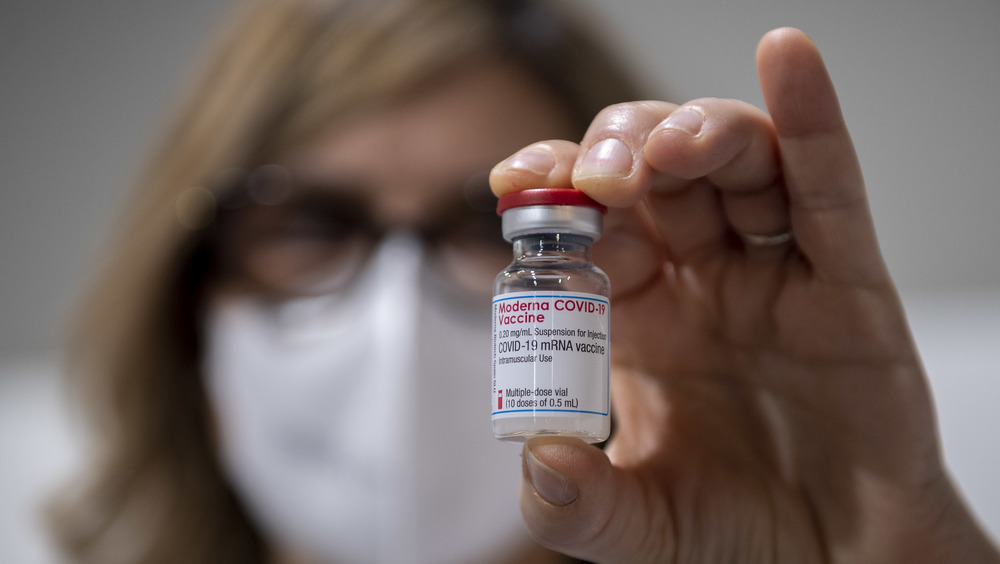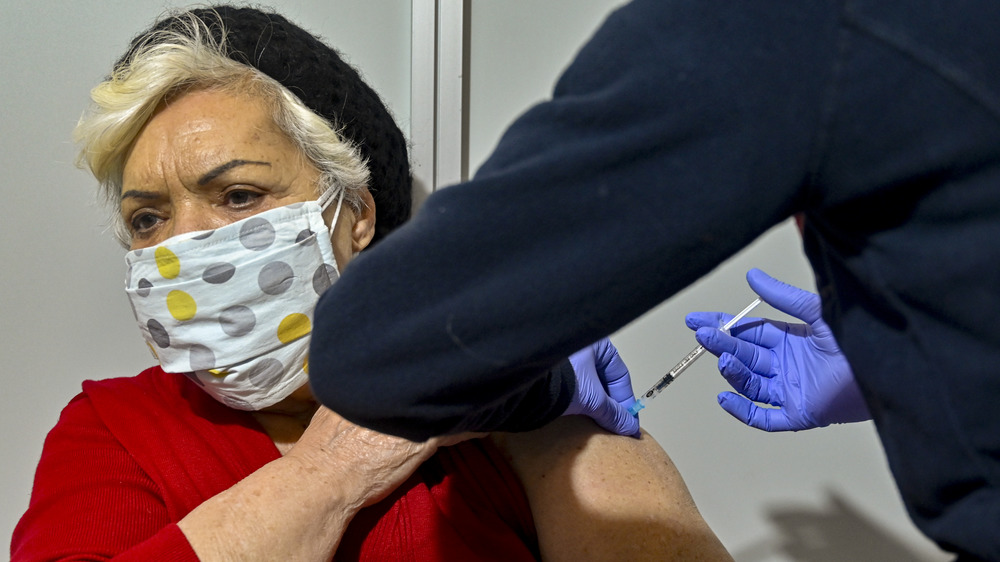The Delayed Side Effect Of The Moderna Vaccine You Need To Know About
As of February 11, 2021, Moderna had provided the United States with over 41 million doses of the 300 million it has committed to giving the country. And, according to Moderna, over 22 million Americans had received at least one dose of its vaccine.
If you're one such vaccine recipient, or if you are about to become one, you may be noticing delayed reactions at the Moderna vaccine where a healthcare professional injected it. In a recent letter to the New England Journal of Medicine, doctors noticed that just under 1 percent of study participants in a phase 3 clinical trial of the Moderna vaccine (244 of 30,420 patients) developed reactions at the vaccine's injection site, eight or more days after receiving their first vaccine dose. Such reactions included red, inflamed and tender skin. Of all participants, 0.2 percent developed similar reactions after a second vaccine dose.
A total of 12 patients developed skin rashes between 4 and 11 days after the first dose, and, significantly, after "initial local and systemic symptoms associated with vaccination" had already cleared. "For most people who are experiencing this, we believe it's tied to the body's immune system going to work," letter co-writer Esther Freeman said in a statement released by Massachusetts General Hospital.
Should you be worried if you get a rash after a dose of Moderna?
Did you develop a rash after getting your first dose of the Moderna vaccine? Freeman, the director of Global Health Dermatology at Massachusetts General Hospital, doesn't think that developing a skin irritation should prevent you from getting your second dose of the vaccine. Moreover, says letter co-author Erica Shenoy, associate chief of Mass General Hospital's Infection Control Unit, such rashes and skin hypersensitivity "could be confused — by clinicians and patients alike — with a skin infection" (via Massachusetts General Hospital). But, in the case of the study reported on in The New England Journal of Medicine, treating the rashes with antibiotics was ineffective. Instead, patients who developed skin reactions to Moderna were treated effectively with ice and antihistamines. More severe cases required corticosteroids.
There's more good news. If you develop rash after taking Moderna, Freeman and Shenoy's research indicates that you probably won't have to deal with the symptoms in the longterm. The 12 vaccine recipients with skin irritations mentioned in the New England Journal of Medicine saw their symptoms clear up, on average, after "nearly a week."
You shouldn't necessarily be alarmed if you develop a skin reaction after your second dose of the Moderna vaccine, either. Six of the 12 patients mentioned in the New England Journal of Medicine letter went on to develop a subsequent reaction after a second vaccine dose. According to a Massachusetts General Hospital's statement, none of these reactions "was more severe than their dose one reaction."


